Before You Pave: Why Hiring a Licensed Asphalt Contractor Could Save You Thousands
Highlights
- Shows how unlicensed crews can inflate costs through fines, repairs, and accidents
- Explains licensing, insurance, and code compliance in plain language
- Details long-term savings from better materials, warranties, and durability
- Offers a real-world example featuring Advance Paving Co. INC
- Gives a vetting checklist and contract tips—no bullet lists inside the main text
Cut-Rate Crews Often Lead to Costly Comebacks
Paving looks simple until a thin mat, shaky base, or poorly set grade sends water pooling toward your garage. Homeowners then pay twice: once for the job and again for remediation. Licensed asphalt contractors invest in training, calibrated rollers, and proper sub-base compaction. Those steps prevent rutting and potholes that spring up within months. By treating a driveway like infrastructure—not a quick cash job—licensed pros keep you from spending weekends patching cracks or hiring a second crew to tear everything out.
Hidden Costs of Skipping Licenses and Permits
Municipalities require permits for most paving projects. Unlicensed outfits sometimes skip them, telling clients permits are “optional” to look cheap. If an inspector stops by, you—not the crew—receive the citation and must pay to bring the pavement up to code. Add re-inspection fees and project delays, and the bargain bid balloons. Licensed contractors file permits, schedule inspections, and include those costs transparently in the estimate, so there are no midnight calls begging you to sign retroactive paperwork.
Insurance: Your Shield Against Liability
Accidents happen: a roller bumps the garage door, a worker twists an ankle, or hot mix splatters a parked car. A licensed contractor carries general liability and workers’ compensation that cover such events. According to Maryland Asphalt LLC, hiring properly insured professionals protects property owners from out-of-pocket damage claims and medical bills. When a company can show valid certificates, you avoid tapping homeowners insurance or dealing with liens if injuries become lawsuits—savings that dwarf any modest price difference.
Better Materials, Bulk Pricing, Lower Lifetime Costs
Licensed contractors maintain accounts with reputable batch plants, buying high-grade aggregates and polymer-modified binders at bulk rates. DIY buyers or fly-by-nighters often settle for leftover loads that cool en route, weakening the mat. Quality mix compacts tighter and resists oxidation, delaying the first sealcoat cycle and extending life by years. Spending a bit more on the front end equals fewer pothole repairs, less resurfacing, and more time before a full replacement—thousands kept in your pocket over the pavement’s lifespan.
Did you know? Asphalt pavements are America’s most recycled product, with
over 99% of removed asphalt being reused, saving taxpayers around $300 million annually.
Durability Starts Below the Surface
The biggest savings occur where you never look: the sub-base. Licensed crews excavate to proper depth, grade for drainage, and install crushed stone in measured lifts compacted to specification. Unlicensed outfits may spread gravel once and start paving immediately, trapping moisture underneath. Frost heave then breaks the surface, and patchwork begins. Paying for correct base prep prevents those callbacks and protects adjoining structures like retaining walls or curbs from settling fractures.
Warranty and Post-Job Support
Reputable, licensed contractors issue written warranties—often one year for workmanship and multiple years for structural integrity. If depressions form or raveling appears, they return to make it right. Unlicensed crews disappear once the final check clears, leaving you to fund every repair. A solid warranty converts into measurable savings because it shifts financial risk back to the contractor, not the homeowner. Keep all paperwork; many warranties transfer to new buyers, boosting resale value.
Higher Appraisal and Buyer Confidence
Real estate agents report that professionally paved driveways improve curb appeal and appraisal numbers. When sellers present invoices from a licensed contractor, inspectors and buyers trust the work’s longevity. That trust can translate into quicker offers and stronger negotiation leverage. In contrast, evidence of a bootleg job raises red flags; buyers might demand a credit or replacement, eating into profits. Spending wisely during installation often returns a multiple when it’s time to sell.
Avoiding Scams and Asphalt “Gypsies”
Every spring, transient teams cruise neighborhoods offering leftover mix for cash. They may demand payment up front, disappear mid-job, or lay a paper-thin layer destined to crumble. Licensed contractors list a permanent address, hold state or county licenses, and welcome you to verify them. Ask for an office visit or ongoing project tour; trustworthy companies oblige. Checking a license number against online registries takes minutes and can save thousands in headaches.
Why should I avoid hiring an unlicensed asphalt contractor?
Unlicensed contractors often cut corners by skipping permits, using subpar materials, or failing to meet local codes. This can result in poor drainage, early surface failure, or costly fines. If anything goes wrong, you may also have limited legal recourse. Hiring a licensed contractor ensures the job is done to industry standards and backed by proper insurance and warranties.
What kind of insurance should an asphalt contractor carry?
At a minimum, they should have general liability insurance and workers’ compensation. Liability insurance protects you from damage to your property during the job, while workers’ comp covers any injuries their crew might sustain. Always ask for a Certificate of Insurance and verify it before work begins.
Does hiring a licensed contractor cost more?
Licensed contractors may not always offer the cheapest bid upfront, but they often save you money in the long run. You’re paying for code compliance, safer work practices, better materials, and warranty-backed performance—all of which reduce the risk of future repairs and legal issues.
A Local Success Story
Homeowners near Spring Hill, TN, recently pooled resources for a shared-drive resurfacing. They chose Advance Paving Co. INC, a fully licensed and insured contractor, after comparing bids. Though not the cheapest, Advance documented soil compaction tests, provided a two-year warranty, and coordinated permits with county officials. The project finished on schedule, and residents have reported zero pooling or edge breakup after two freeze-thaw cycles—proof that a vetted choice pays dividends long after the rollers leave.
Your Vetting Checklist—No Bullets Needed
Start by asking for the contractor’s license number, insurance certificates, and bond details. Verify those documents with the issuing agencies. Request at least three recent local references and drive past completed jobs to inspect joint lines and drainage patterns. Compare written estimates for scope parity—are base depth, mix type, and thickness identical? Clarify warranty length and coverage specifics. Insist on a detailed contract outlining payment stages tied to milestones, not calendar dates.
Contract Clauses That Protect Your Wallet
Make the final payment contingent on passing municipal inspection and receiving lien waivers from suppliers, preventing material yards from billing you if the contractor fails to pay. Include a hold-back clause retaining a small portion for thirty days to ensure no latent issues appear. Require that any change orders be signed and priced before work proceeds. These legal safeguards cost nothing but strengthen your position should disputes occur.
Long-Term Maintenance Still Matters
Even the best-laid asphalt benefits from routine care. Plan to sealcoat after the first year, then every three to five years, depending on traffic. Keep edges clear of vegetation so roots don’t undermine the mat, and sweep sand or de-icing grit that acts like sandpaper under tires. A licensed contractor often offers maintenance packages at reduced rates for past clients—another way professional relationships lower lifetime costs.
Did you know? Asphalt paving can be installed much faster than concrete, helping to minimize disruptions to daily activity and traffic.
Pay Smart, Not Twice
Selecting an asphalt crew shouldn’t hinge solely on the lowest estimate. Licenses, insurance, quality materials, and reliable warranties translate directly into savings by preventing fines, accidents, premature failures, and diminished resale value. One thorough check of credentials can spare you the expense of tearing out a faulty driveway, paying medical bills, or haggling at closing time. Before you pave, invest a little more up front with a licensed professional—you’ll keep thousands in your wallet over the pavement’s long service life.



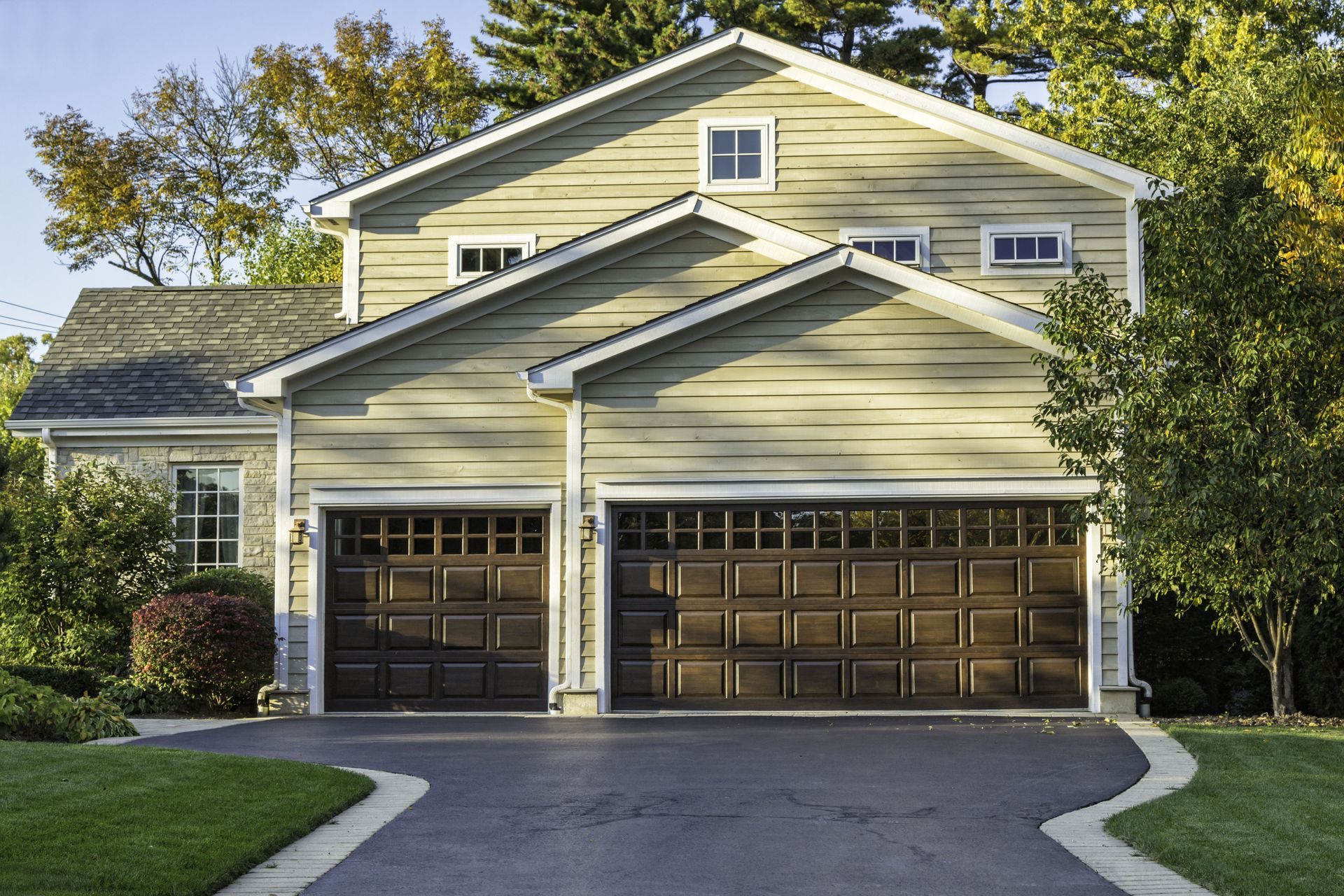
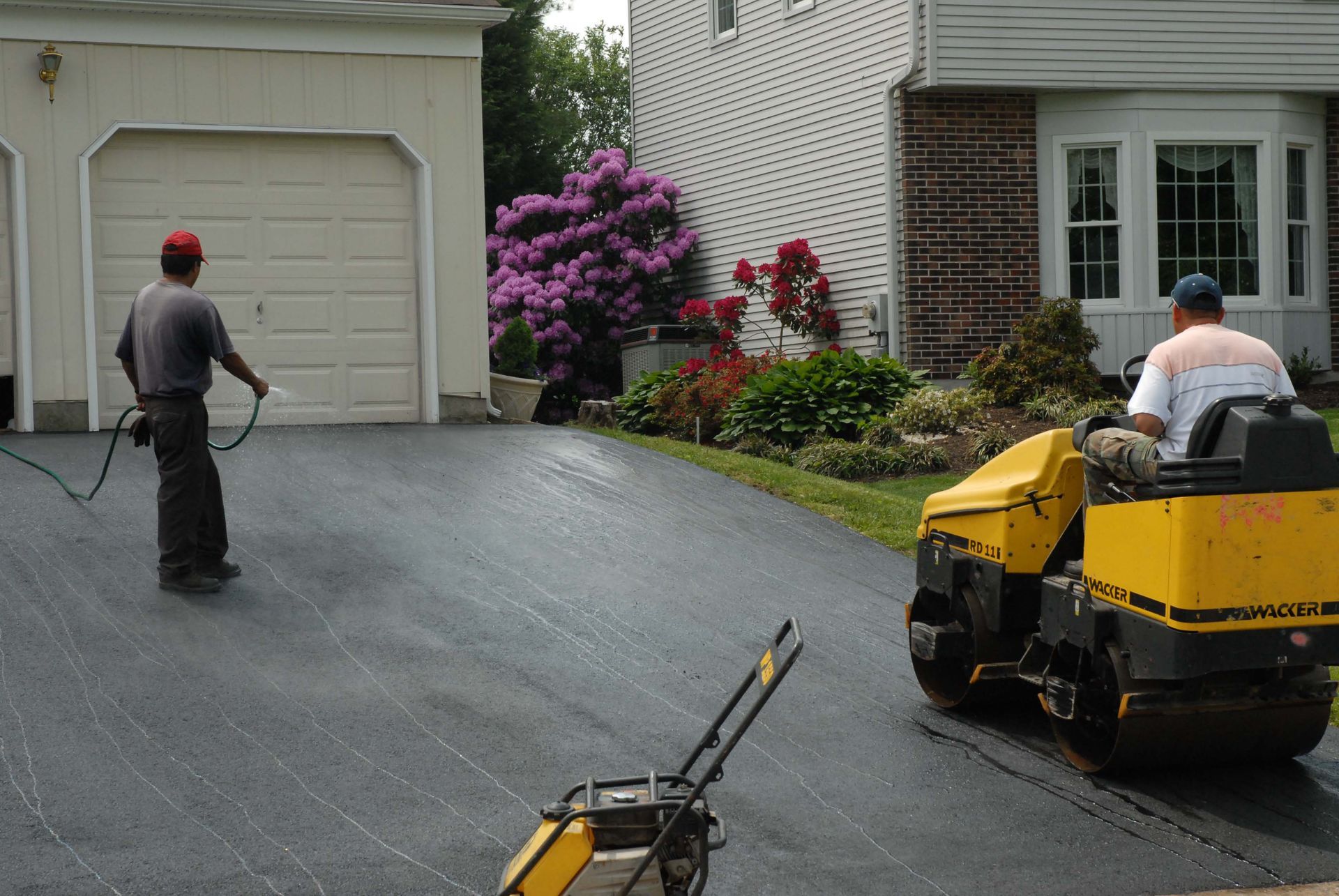

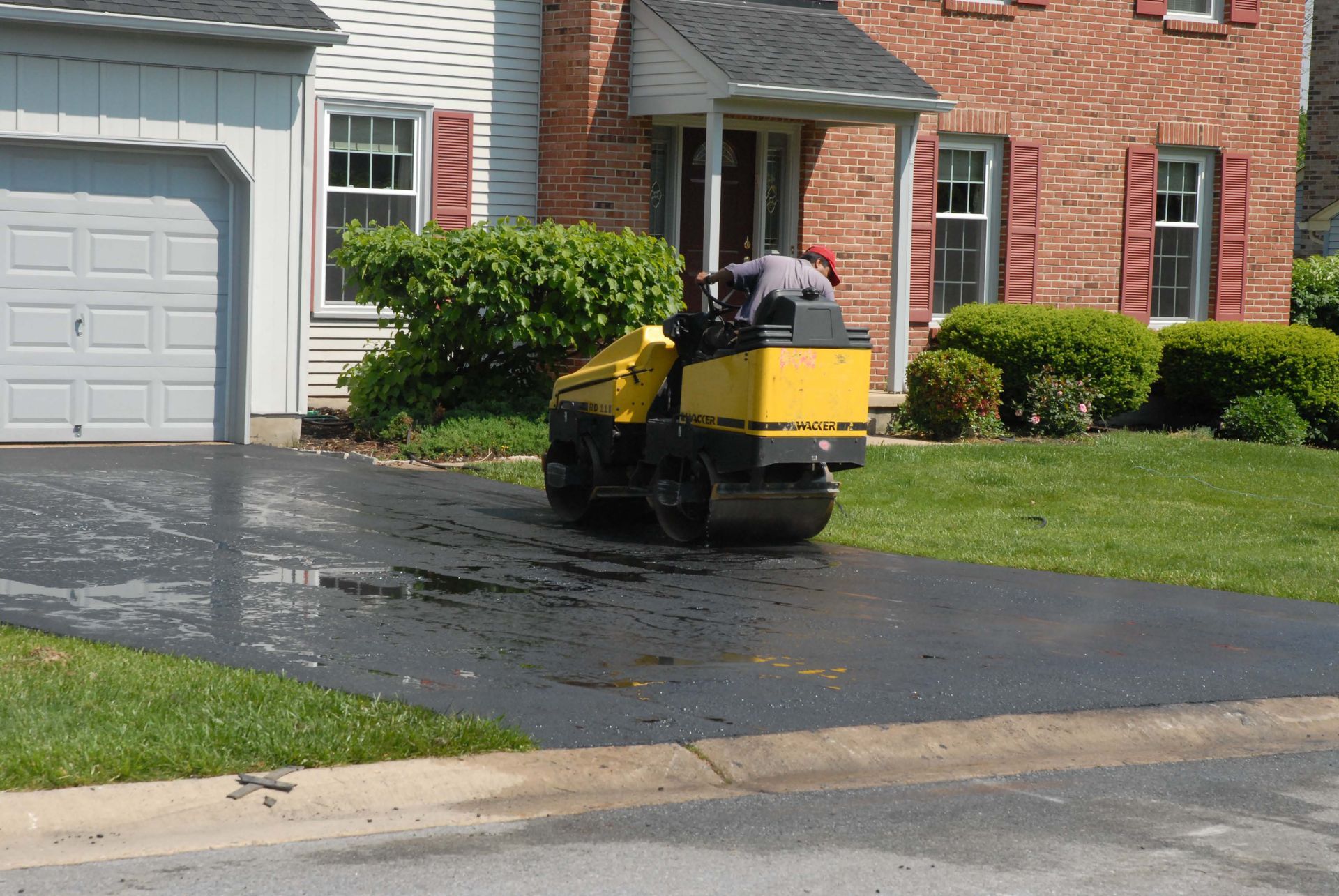
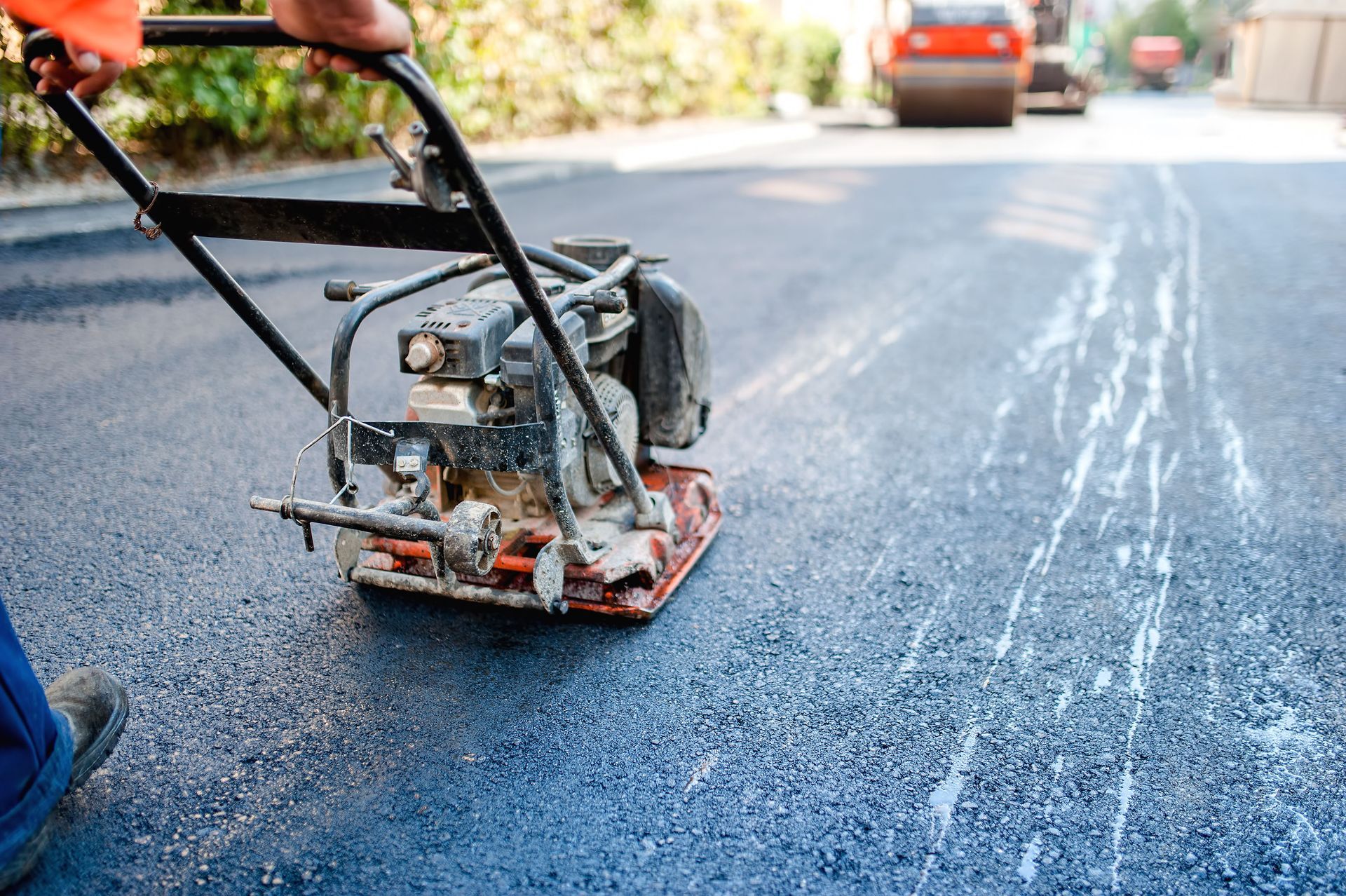

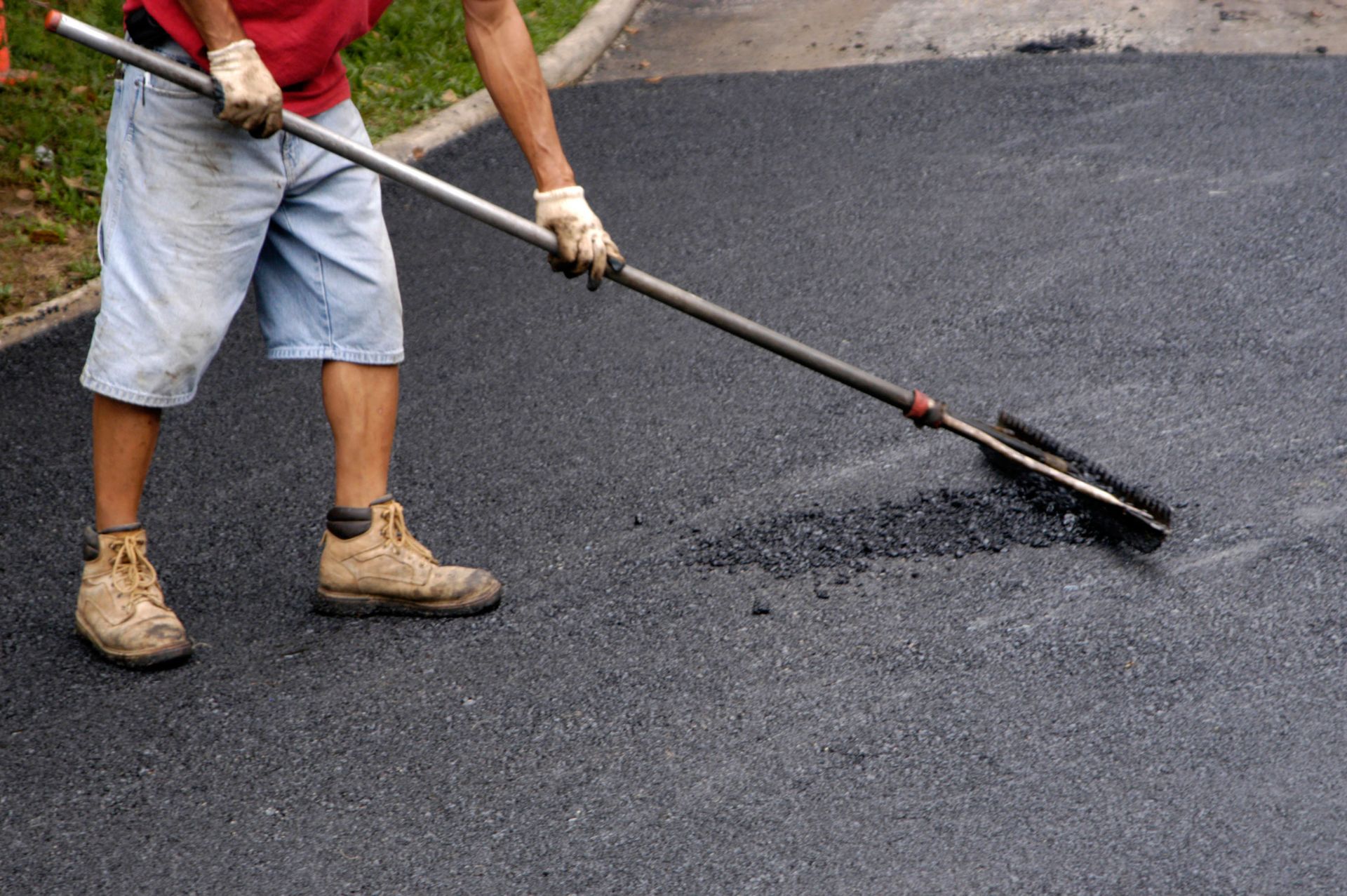
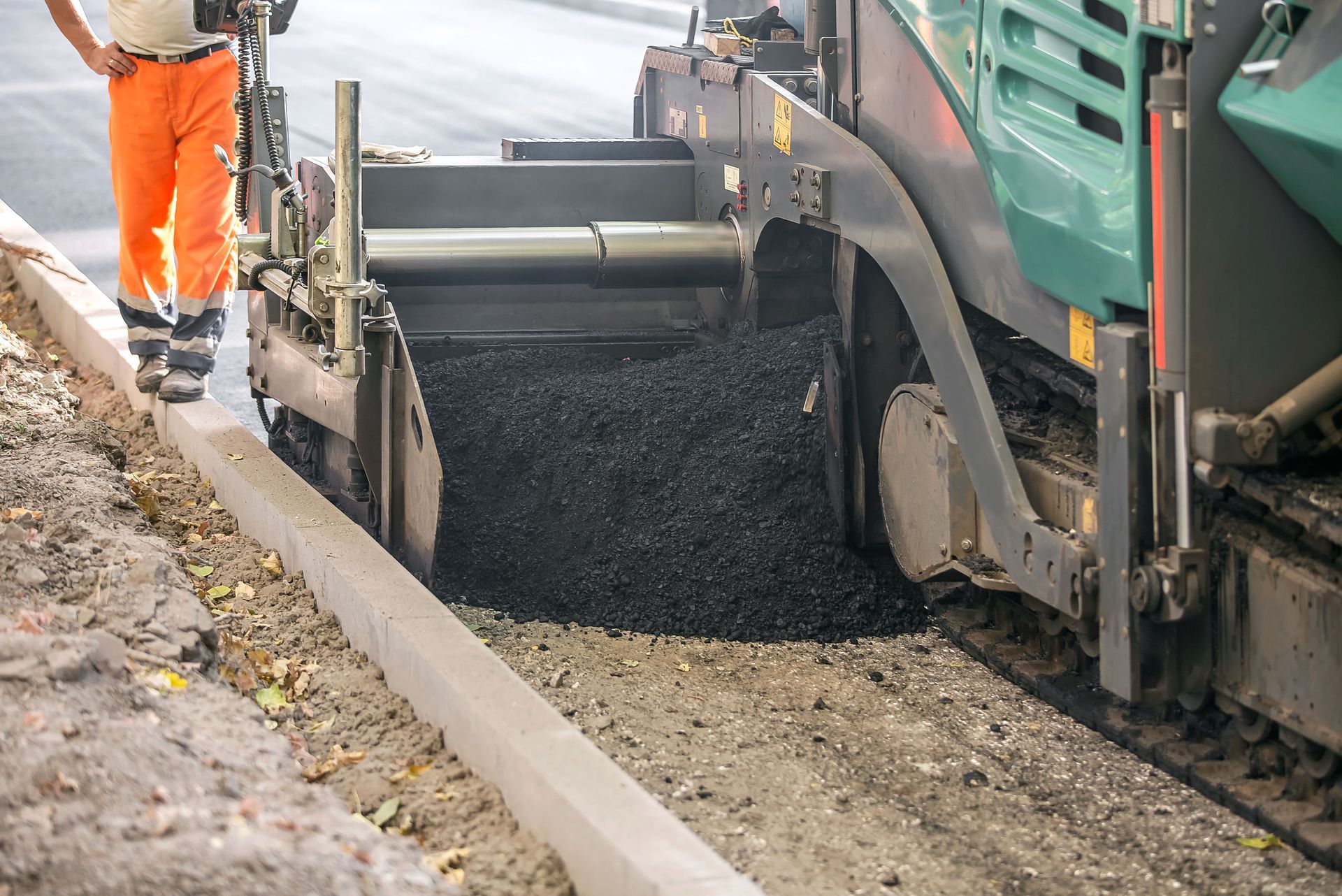
Share On: